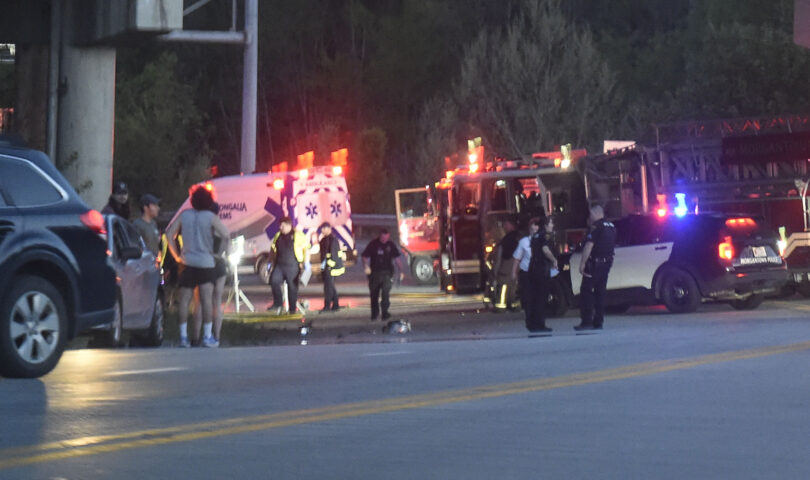First responders rush to the scene of accidents, often risking their own safety to provide life-saving care to those involved. Traffic accidents present additional challenges to firefighters and paramedics who have to navigate safety concerns from the wrecks themselves and other vehicles passing the scene.
This week, Nov. 13-17, is Crash Responder Safety Week, an initiative sponsored by the U.S. Department of Transportation Federal Highway Administration designed to raise public awareness and help keep firefighters, paramedics, other first responders — and the public — safe. The national safety event promotes “Slow Down, Move Over” law awareness for motorists and free traffic incident management (TIM) training for responders.
West Virginia traffic code states that drivers on multi-lane highways approaching a stationary authorized emergency vehicle displaying flashing lights must proceed with due caution, yield the right-of-way by making a lane change not adjacent to that of the authorized emergency vehicle and reduce speed to a safe level for road conditions.
On smaller roads where changing lanes is not possible or unsafe, the law states drivers must reduce speed. When passing an accident, speeds should not exceed 15 miles per hour on any non-divided highway or street and 25 miles per hour on any divided highway depending on road conditions.
In a recent press release, the International Association of Fire Fighters (IAFF) urged the public to use extreme caution while driving near traffic accidents, stating that fire fighters and paramedics work tirelessly to save lives at traffic incident scenes as swiftly and safely as possible.
Too often, this work leads to tragedy, claiming the life of nearly one first responder each week in the United States. Many more sustain life-altering injuries while responding to traffic accidents.
Many of these incidents occur because drivers are distracted while passing an accident scene.
“The National Highway Transportation Safety Administration reports that distracted driving is six times more dangerous than driving under the influence,” said Morgantown Fire Department Lieutenant John Lemley.
“Both distracted and DUI drivers are an increased hazard to fire, police, EMS and other workers that respond to roadway crashes,” he said. “It is very important for drivers to be keenly aware of possible road hazards and to even anticipate encountering emergency personnel operating on or near the roadways.”
The IAFF and local agencies urge citizens to do their part to protect both themselves and responders by using extra caution and care, slowing down, moving over, and staying alert when approaching traffic accidents.
“In the case of a motor vehicle accident, emergency responders will be working to provide care to any injured persons, stabilize the scene to prevent unwanted movement of the vehicles, and to mitigate any hazards such as spilled motor fluids and debris,” Lemley explained. “Often times a tow vehicle is necessary to move vehicles from the scene. For this reason, responders may be seen standing idly for no apparent reason. We ask that other drivers be patient and courteous.”
In West Virginia, drivers who violate the slow down, move over law can face misdemeanor charges with a fine up to $500, up to 60 days in jail, or a combination of both. Penalties are significantly increased if property damage, injuries or death occur.
TWEET @DominionPostWV




